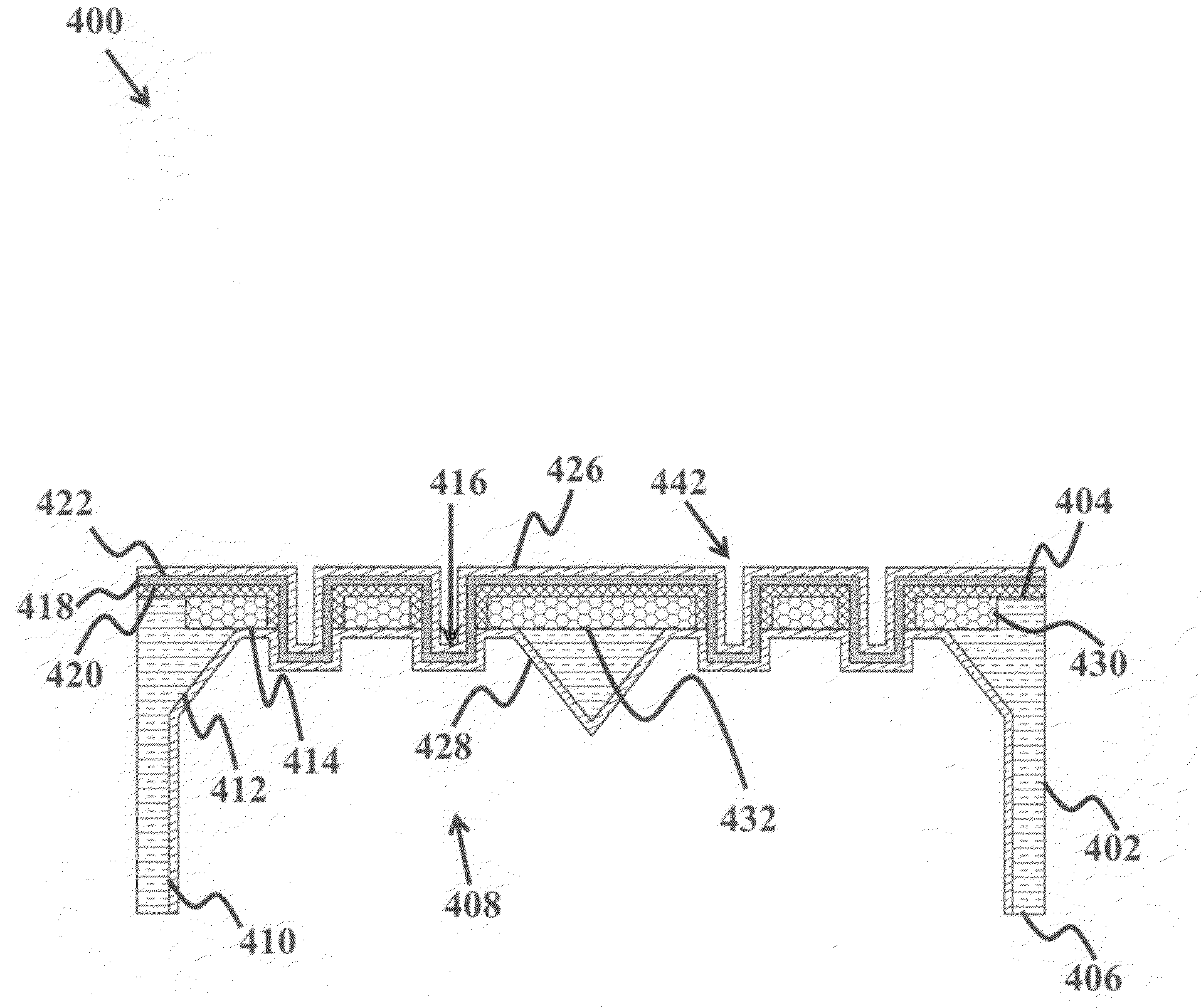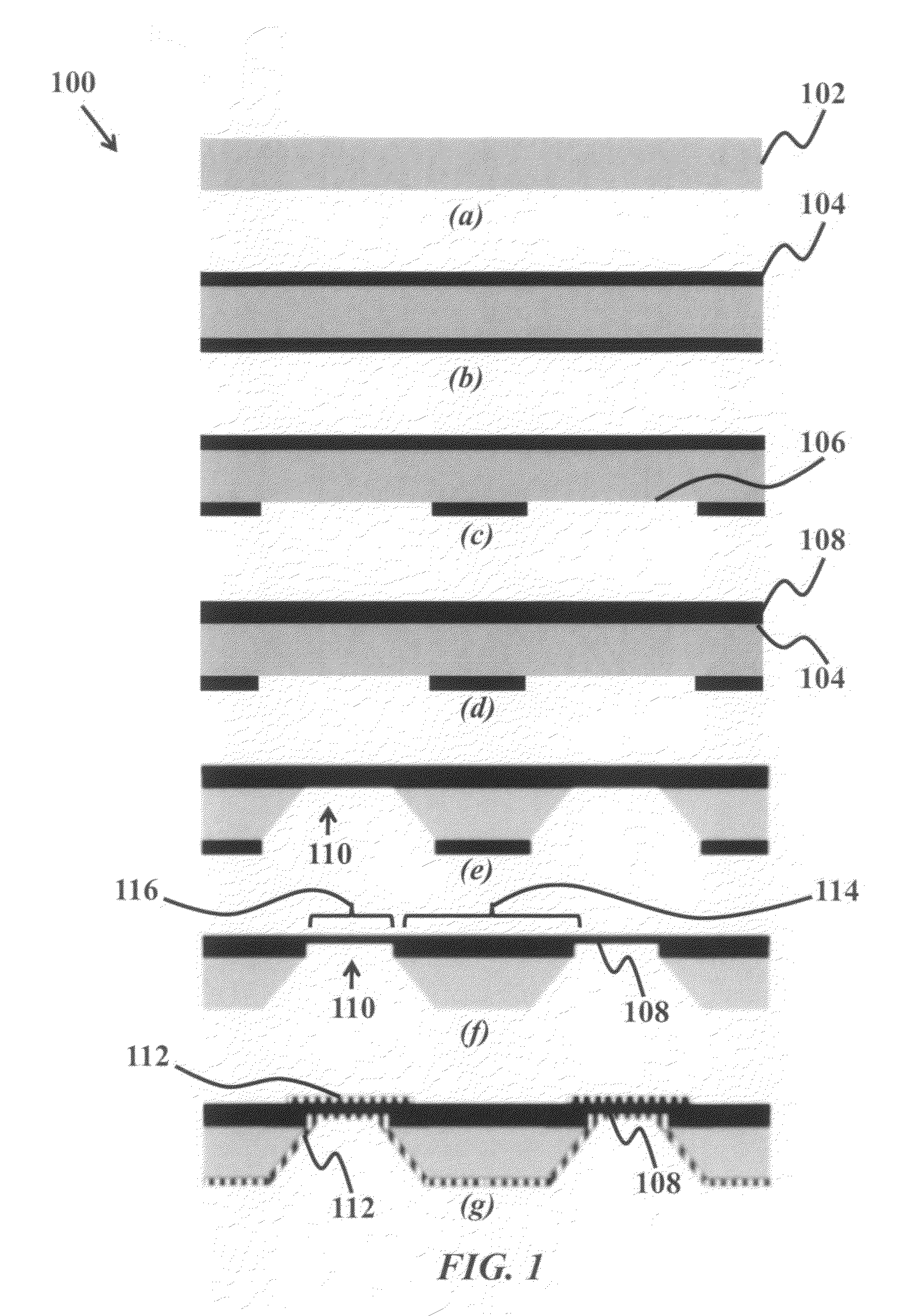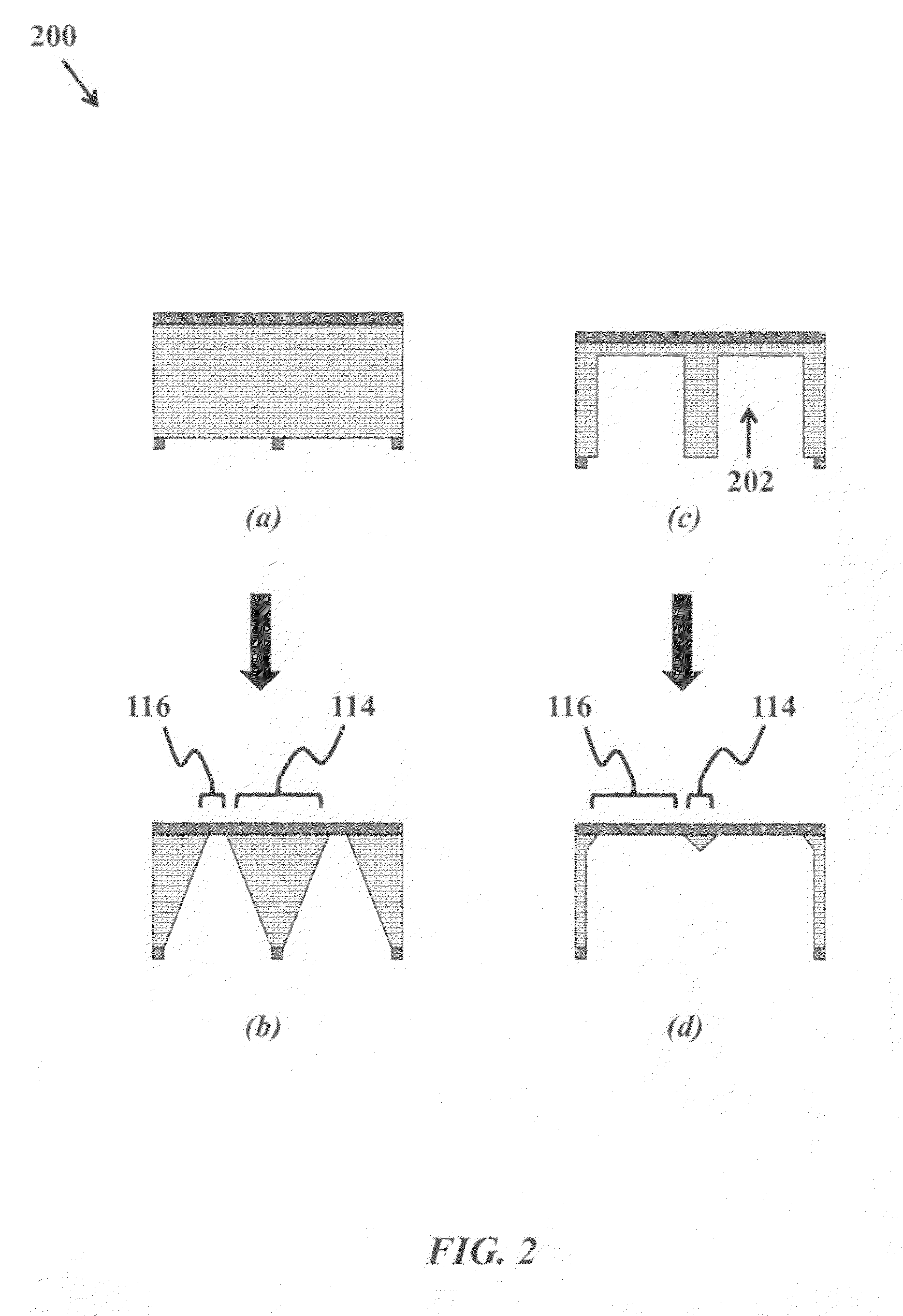Fabrication method of thin film solid oxide fuel cells
a technology of solid oxide fuel cells and thin films, applied in photomechanical equipment, electrochemical generators, instruments, etc., can solve the problems of limited sofcs application to large scale, low surface area density, and insignificant absolute power generation
- Summary
- Abstract
- Description
- Claims
- Application Information
AI Technical Summary
Benefits of technology
Problems solved by technology
Method used
Image
Examples
Embodiment Construction
[0033]Although the following detailed description contains many specifics for the purposes of illustration, anyone of ordinary skill in the art will readily appreciate that many variations and alterations to the following exemplary details are within the scope of the invention. Accordingly, the following preferred embodiment of the invention is set forth without any loss of generality to, and without imposing limitations upon, the claimed invention.
[0034]Solid oxide fuel cells (SOFCs) utilize a range of ceramic electrolyte materials, with yttria stabilized zirconia (YSZ) being the most common choice. Due to the low oxygen ionic conductivity of solid electrolyte, traditional SOFCs need to operate at relatively high temperature (800-1000° C.). This limits the application of SOFCs to large scale, stationary applications. Operating SOFCs at low temperature decreases the electrolyte ionic conductivity, and consequently, the power density of fuels cell is sacrificed. One effective way to ...
PUM
| Property | Measurement | Unit |
|---|---|---|
| thickness | aaaaa | aaaaa |
| diameters sizes | aaaaa | aaaaa |
| thickness | aaaaa | aaaaa |
Abstract
Description
Claims
Application Information
 Login to View More
Login to View More - R&D
- Intellectual Property
- Life Sciences
- Materials
- Tech Scout
- Unparalleled Data Quality
- Higher Quality Content
- 60% Fewer Hallucinations
Browse by: Latest US Patents, China's latest patents, Technical Efficacy Thesaurus, Application Domain, Technology Topic, Popular Technical Reports.
© 2025 PatSnap. All rights reserved.Legal|Privacy policy|Modern Slavery Act Transparency Statement|Sitemap|About US| Contact US: help@patsnap.com



